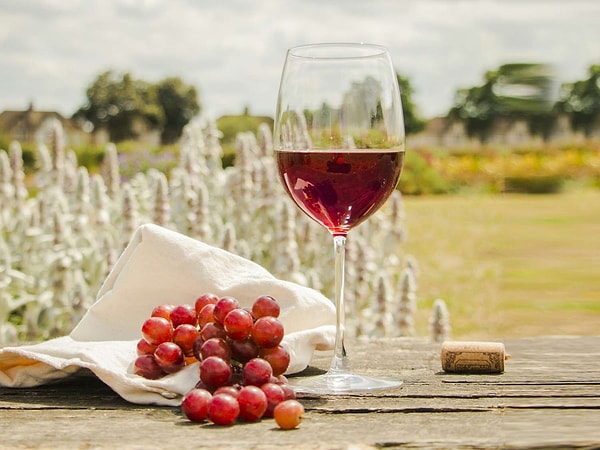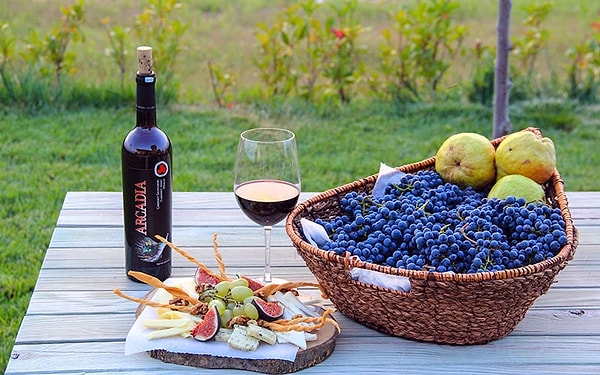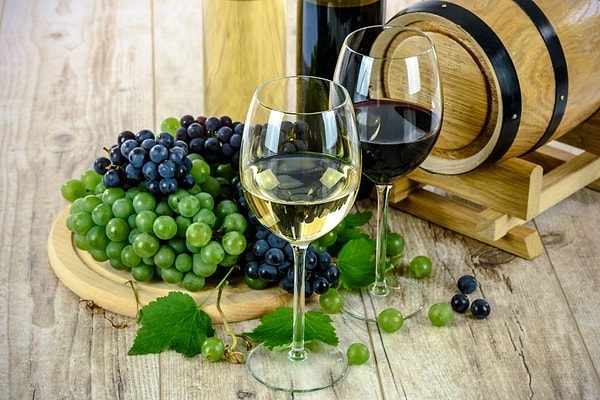The Taste of Terroir: Exploring the Rich Wine Culture of Turkey
When it comes to wine, Turkey is an often overlooked gem, hiding a vibrant and ancient wine culture waiting to be discovered. From the historic vineyards of Thrace to the sun-kissed valleys of Anatolia, Turkey boasts a diverse array of grape varietals and winemaking traditions that span centuries. In this article, we delve into the fascinating world of Turkish wine, exploring its unique characteristics, notable wine regions, indigenous grape varieties, and the burgeoning wine tourism scene.
The History of Turkish Wine:

Turkey has a storied history of winemaking, dating back thousands of years. The region's viticultural roots can be traced to ancient civilizations such as the Hittites, Phrygians, and Greeks. Wine production reached its peak during the Byzantine and Ottoman periods, with Turkish wines gaining international recognition and favor. Discover the historical significance of Turkish wine and its revival in recent decades.
Wine Regions of Turkey:

Turkey's diverse geography and climate create an ideal environment for wine production. Explore the major wine regions, including Thrace, Aegean, Marmara, Central Anatolia, Eastern Anatolia, and the Mediterranean. Each region offers its own distinct terroir, contributing to the unique characteristics of the wines produced there. From the volcanic soils of Cappadocia to the coastal breezes of the Aegean, each region presents a fascinating wine landscape.
Indigenous Grape Varieties:

One of the standout features of Turkish wine is its wealth of indigenous grape varieties. Discover the unique flavors and aromas of grapes such as Öküzgözü, Kalecik Karası, Bogazkere, Narince, and Emir. These native grapes have adapted to the local terroir over centuries, producing wines that reflect the rich cultural and agricultural heritage of Turkey. Learn about the efforts to preserve and promote these indigenous varietals.
Wine Production Techniques and Styles:

Turkish winemakers employ a blend of traditional and modern winemaking techniques, resulting in a wide range of wine styles. From classic reds and whites to rosés, sparkling wines, and even natural wines, Turkish winemakers are exploring new horizons while staying true to their roots. Understand the different winemaking methods, aging processes, and the impact they have on the final product.
Wine and Gastronomy:

No exploration of Turkish wine is complete without delving into its perfect pairing with the country's rich culinary traditions. From hearty kebabs to aromatic meze dishes, Turkish cuisine offers a myriad of flavors that complement and enhance the wines. Discover the art of food and wine pairing, and explore the regional specialties that perfectly match the diverse array of Turkish wines.
Wine Tourism in Turkey:

As the reputation of Turkish wines continues to grow, so does the interest in wine tourism. Experience the magic of vineyard tours, wine tastings, and cellar visits across the country. Visit renowned wineries such as Doluca, Kavaklıdere, Vinkara, and Urla, where you can immerse yourself in the winemaking process, enjoy guided tastings, and learn about the local viticulture.
Wine Festivals and Events:

Turkey hosts several wine festivals and events throughout the year, celebrating the country's winemaking heritage and offering a platform for winemakers to showcase their products. Discover events like the International Wine Competition and Festival in Izmir, the Wine and Cheese Festival in Cappadocia, and the Wine Harvest Festival in Thrace. These celebrations are perfect opportunities to mingle with wine enthusiasts, meet winemakers, and savor the diverse flavors of Turkish wines.
Sustainable Wine Practices:

In recent years, there has been a growing emphasis on sustainable winemaking practices in Turkey. Many wineries have adopted organic and biodynamic farming methods, prioritizing the health of the vineyards and the environment. Explore the sustainable initiatives undertaken by Turkish winemakers, including biodiversity preservation, water conservation, and community involvement. Discover how these practices contribute to the quality and authenticity of Turkish wines.
Wine Education and Certification:

As the Turkish wine industry expands, there is a growing demand for wine education and certification programs. Enthusiasts and professionals alike can participate in wine courses, workshops, and sommelier training to deepen their knowledge of Turkish wines. Learn about the opportunities available to further explore the world of Turkish wine and enhance your appreciation for its intricacies.
Exporting Turkish Wines:

While Turkish wines have been enjoyed domestically for centuries, there is a renewed focus on exporting to international markets. Turkish winemakers are increasingly gaining recognition and accolades on the global stage. Discover the export markets where Turkish wines are finding success, and the efforts being made to promote and introduce these unique wines to a wider audience.
What is your favorite wine? Tell us in the comments!
Keşfet ile ziyaret ettiğin tüm kategorileri tek akışta gör!


Send Comment